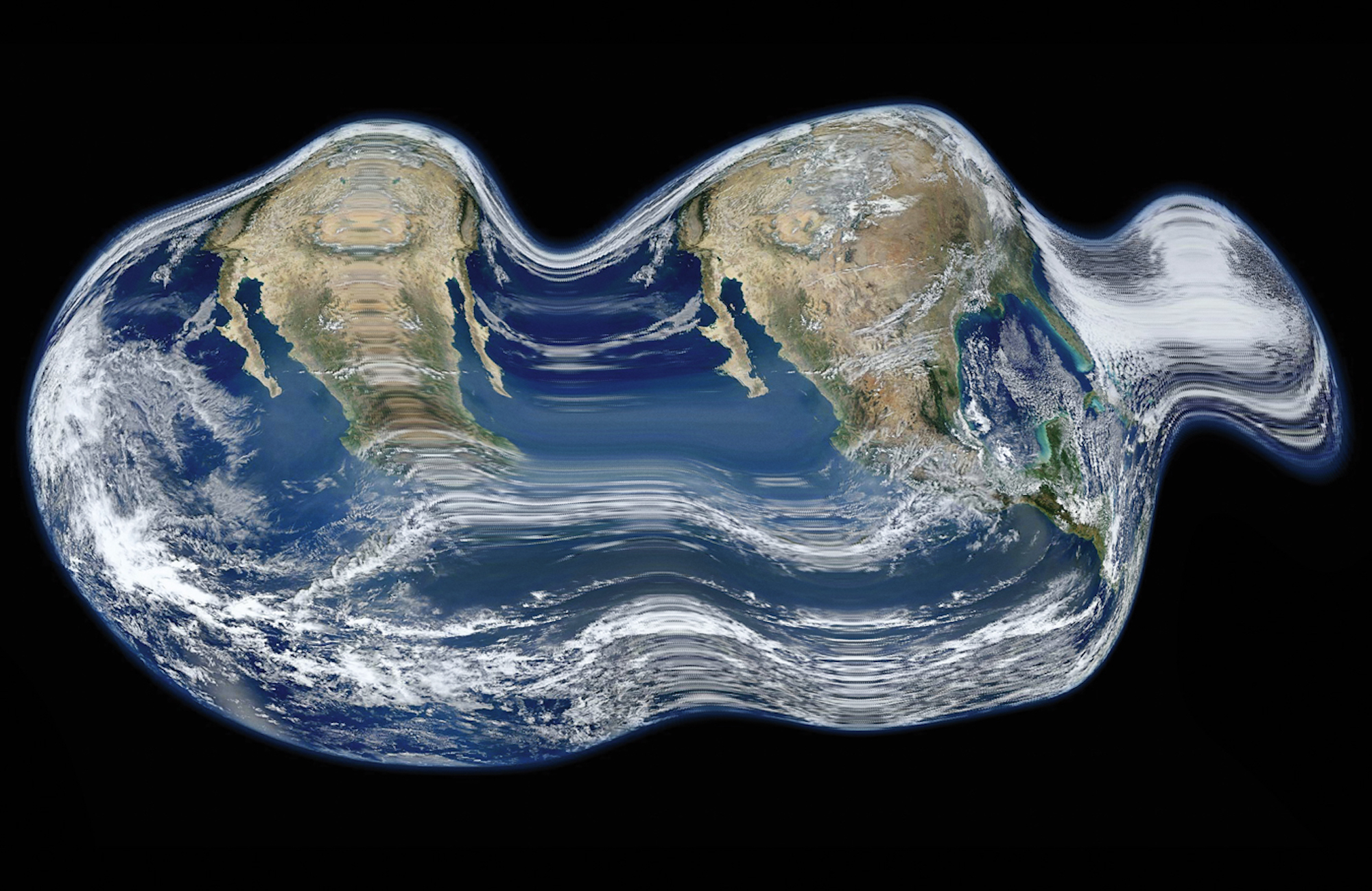This story originally appeared in i-D’s The Earthrise Issue, no. 368, Summer 2022. Order your copy here.
There’s a core of complexity that sits at the heart of what both Total Luxury Spa and Martine Syms do; something that maybe runs to a deeper question about how we expect both brands and artists to exist and work in the world at the moment. We want to reduce them, but complexity offers a kind of freedom – to avoid being typecast, pigeonholed, or stereotyped, which means it allows you to do what you want to do. It allows you to follow your creativity – or to work with others and allow them to follow theirs. These are things that allow you to work humbly, to be collaborative, to be part of a community and give back to that community.
On the most superficial level, Total Luxury Spa are a clothing brand: they make T-shirts, jumpers, and socks. The clothes they make have a holistic bend; they are emblazoned with slogans about equilibrium, the Earth, the ecosystem, about caring for our inner beings and the outer world. They are clothes that carry an optimistic message about who we can be in society, that ask us to think critically about that society, and consider how we can improve it. They suggest that by giving back we can stimulate that feedback loop to increase creativity and rise up together.
To that end, Total Luxury Spa have engaged in projects as diverse as zine making and running meditation classes at their local elementary school; they’ve worked with Kahlil Joseph and Kelsey Lu; they’ve done projects around water rights and vegan food. If you buy a T-shirt, you spread that message. There’s a practice rooted in their local LA neighbourhoods, but it’s also far more universal than that.
“Maybe the “train” of capitalism has left the station and it’s not stopping. You know what I mean? It’s the world we live in, so how can you take advantage of that? How you can shift that towards something you believe in.” Daniel DeSure
Like TLS, Martine is from Los Angeles. She is an artist, a title which often comes with formal baggage: are you a painter or a sculptor? Do you make films or installations? That again reduces what she does – which is all of that – but also whatever she wants. To interrogate the form is to miss the point, because the idea guides the form. It’s work about exploring the digital self, the mythology of a person, how the self interacts with the world and how the systems of capitalism affect the self. For example, her new feature film, The African Desperate, uses humour to investigate Blackness in the art world and the institution of the art school.
And so the following conversation between Martine and Daniel DeSure, isn’t really about what they do – it’s about who they are and how they do it, and all the complexity that entails.
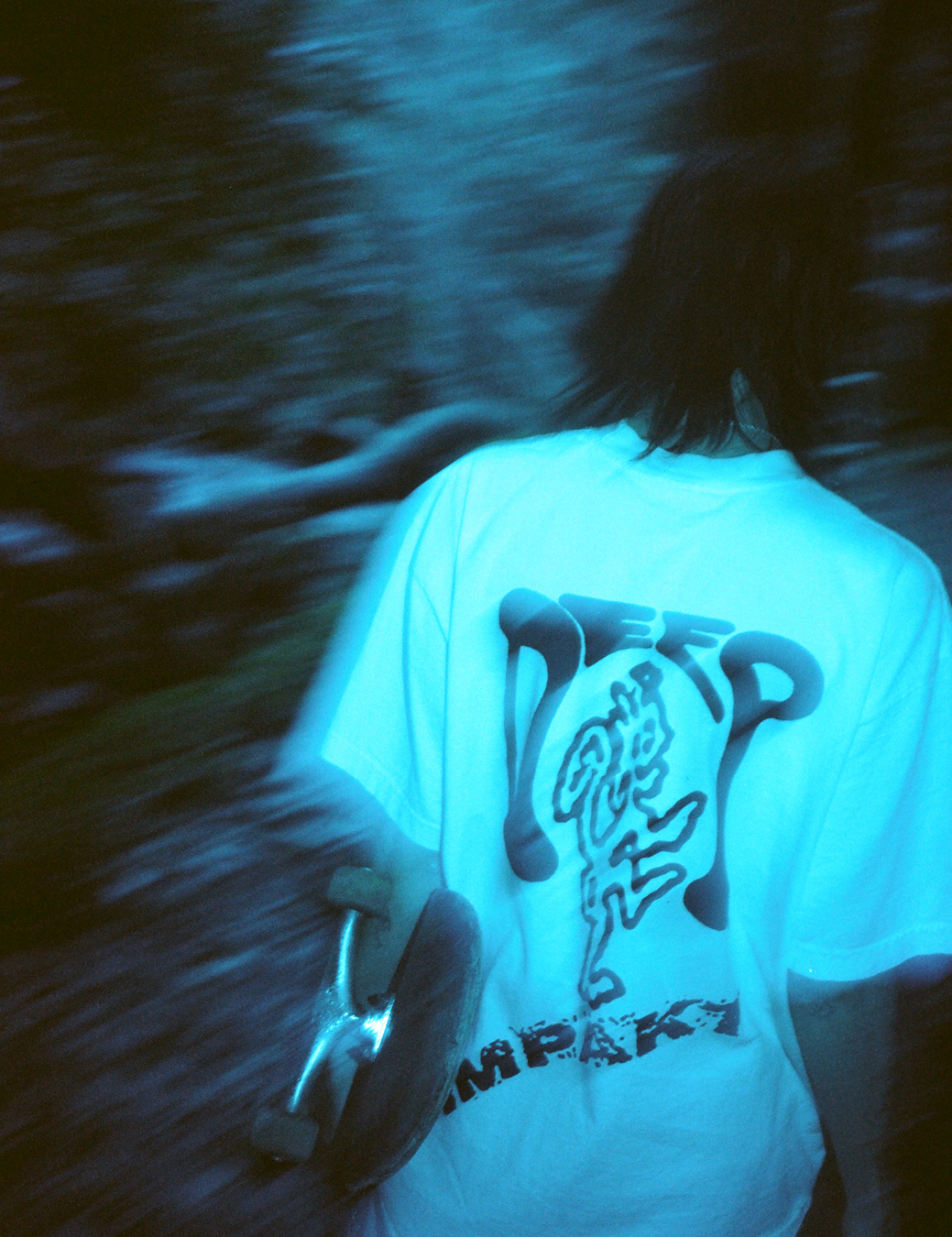
Martine: I haven’t been able to sleep lately – I’m in a non-sleeping phase – so I’ve been watching this Kevin Hart show, and I was listening to Mike Tyson’s podcast.
Daniel: I haven’t listened to it yet.
Martine: I started listening to the episode with Kevin Hart – who’s not somebody I’m super into – but they brought up Kevin’s Netflix show, which is just about him running his business.
Daniel: I don’t know about this show?
Martine: It’s called Don’t F**k This Up. And after listening to the podcast I watched it all.
Daniel: I’ve never heard of this. It’s a documentary?
Martine: It’s kind of wild. It’s a very capitalist… And this is a long way of saying that it’s so weird that I watched all of that show because it’s stuff I’m interested in but, in like the totally opposite way. Everything he’s doing, he’s like, “Oh, how can we get this person to do this, and how can we get this company to sign this off?” Everything about his machination is to be palatable, and I’m not interested in that kind of success. But it was…
Daniel: But in some ways the same mechanism is the same, right?
Martine: Exactly.
Daniel: I’m the same, I’m interested in the same exact thing. Maybe not necessarily from a business standpoint but from sort of a capitalistic standpoint. Like, maybe the “train” of capitalism has left the station and it’s not stopping. You know what I mean? It’s the world we live in, so how can you take advantage of that? How you can shift that towards something you believe in.
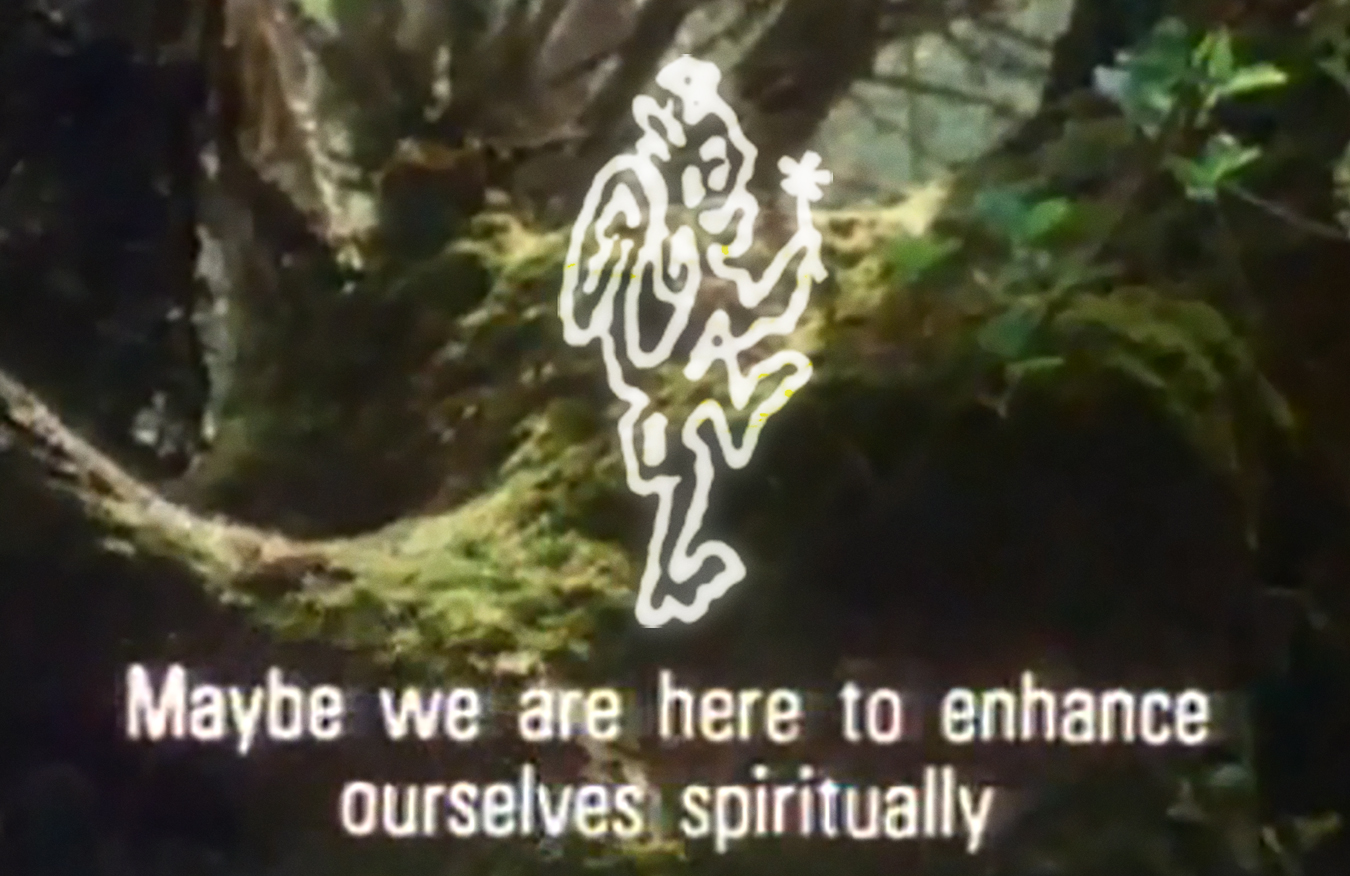
Martine: Yeah, totally.
Daniel: There are ways, I guess, you can start non-profits and you can do all these things, but you can also just go to a fashion company and be like, “Hey, we want to do this thing to help others?.” And like — I don’t know — I hate to say “trick” the system, but somehow work with the system or use it as it’s built in order to shift the focus to something else, something more important. And I think part of the — at least my practice — has always been experimental, but also always sort of — business based. I run a design studio and a clothing line. We’re also part of this system but can we work with others in a way to bring attention to causes we believe in.
Martine: I mean, I’m calling it a business because that’s the acknowledgement of it, but it’s, like, you call it your practice. There is a distinction for me between the two. But when I’m thinking about when something hits the market in whichever form, it is a business whether or not I want to call it that.
Daniel: Definitely. But I do like the idea of having all these tools, right?
Martine: Yeah.
Daniel: And so, that goes back to kind of the Kevin Hart thing, which shows, you still need contracts in place. You still need all this shit. No matter what you’re doing in our practice in order to be autonomous…
Martine: My thing is always about a freedom of thought, emotion and creativity: those things are really ways of protecting those freedoms. And I also value them, because I work in such a wide-ranging manner. My practice is very much focused on ideas, and it’s quite formless. Then as I try to figure out, “Okay, what’s the best form for this thing?” The form never dictates the thing. It always starts from the idea first.
Daniel: I think I’ve only known artists to operate that way. I’m going to definitely watch the Kevin Hart thing. I’ve always been attracted to, worked with, or in parallel with artists because there is that freedom, and there is this genuine thing that just keeps me interested as well, you know what I mean? Whether we’re working on a book, a film, or just in terms of approaching these things through different lenses, you know?
Martine: Do you think about yourself or what you’re doing as a kind of art?
Daniel: At times I do. I think we can run a design studio and take on traditional sorts of design jobs, but then also we can do something like starting a clothing company. There are a lot of different ways of doing it, but for me, it always has to be in conversation with something. If it’s in conversation with something or someone then, okay, where can we take it? And how does that conversation then dictate what it becomes?
So, sometimes it’s a book and sometimes it’s a mom and pop shop in the neighbourhood that we’re in conversation with: it’s not always the best “business model”. Because sometimes you lose money. Sometimes you break even. Sometimes you make a little bit of money. And so I think I’ve always been trying to figure out a way, can a business or a practice become self-sustaining and at the same time sort of do all the things that you want it to do? Can it always support the community as well.
We jump between mediums, and people are like, “Yo, you’re fucking with this thing? We thought you were this.” You’re constantly fighting that. Where I think art can be a bit more open.
Martine: In a way. But people are always trying to make things simple to understand, and I’m really interested in complexity. It doesn’t happen to me so much anymore, but I feel like there was a time where people were like, “What is it that you do? Do you make videos? Do you do design? Do you do this? Do you make books?” I’m like, “I do all of it.” But that’s what I mean, it was funny watching this Kevin Hart thing because I have a lot of opposite values. Like, I really love to be illegible, you know? I retain the right to say, “you don’t get to know.”
Daniel: I love it, it’s incredible. I feel in some ways, it’s the purest form of freedom, you know what I mean? It’s just about you and whatever your output is, it’s not…
Martine: Yeah. I don’t know, and I like not knowing.
Daniel: And then hopefully it follows you.
Martine: Yeah, exactly. Well, that’s what you’re saying, it’s based on conversations, I like that way of putting it. The collaborations that you’ve done all start from talking with someone.
Daniel: You know, we did a meditation pilot programme at the local elementary school here, called Hillcrest Elementary, for third graders and fifth graders. We were doing meditation at the Underground Museum, and I was like, wouldn’t it be cool if we did this career day thing at the elementary school. And I ended up meeting the principal and she was like, “We would love to talk to you guys about some other stuff.” Anyway fast forward, we do this meditation workshop, and I was going to the elementary school two days a week for six months.
Just seeing the evolution in what the kids were taking away from it and the calmness that it was bringing – and I’m not talking about wellness shit – but straight up watching a kid evolve was just beautiful. And, you know, that kind of project wouldn’t have happened unless it came through some sort of natural conversation.
We were trying to work out how to fund it and the principal was like “If you guys get the money, we can make it a real thing.” All of these things are just about us figuring it out. I think through the “figuring out” that hopefully we can sort of build a business or a practice that can sustain or maintain those types of ideas. There’s always a balance. I imagine, if ever we were on a scale of say Nike, that we could do some really amazing shit in the world. Real life changing shit.
With a business, there’s all these things. You have contracts, agreements, and all the paperwork that comes along with those things. And you have the people that help and you need money behind it, and so I think we’ve always been trying to figure out how do you do all those things? Then it’s the same thing with the design studio side of the practice – I like the idea that we can do all of these different types of things, but I think I end up in the same conversation. Often it feels like I’m talking to my parents when they are like, “Wait, so what do you do?” How do you explain it, exactly?
Martine: I know how it is. I think there was just a point at which I was like, “I’ll just say what makes sense in the moment. I won’t try to explain everything I do.” I don’t actually have to do that.
Daniel: You don’t have to paint the whole picture. But I do think – not to sound old – times are changing a bit, and that conversation is easier than it used to be. Because coming out of art school in 2004, even then that conversation was completely insane.
Martine: I graduated in 2007, and it was very much, like “Are you a painter? Are you a sculptor? Are you a filmmaker?” It was very medium-specific, and I do feel that it’s changed a lot. But I also think it’s changed because of kind people like us…
Daniel: Are just doing it.
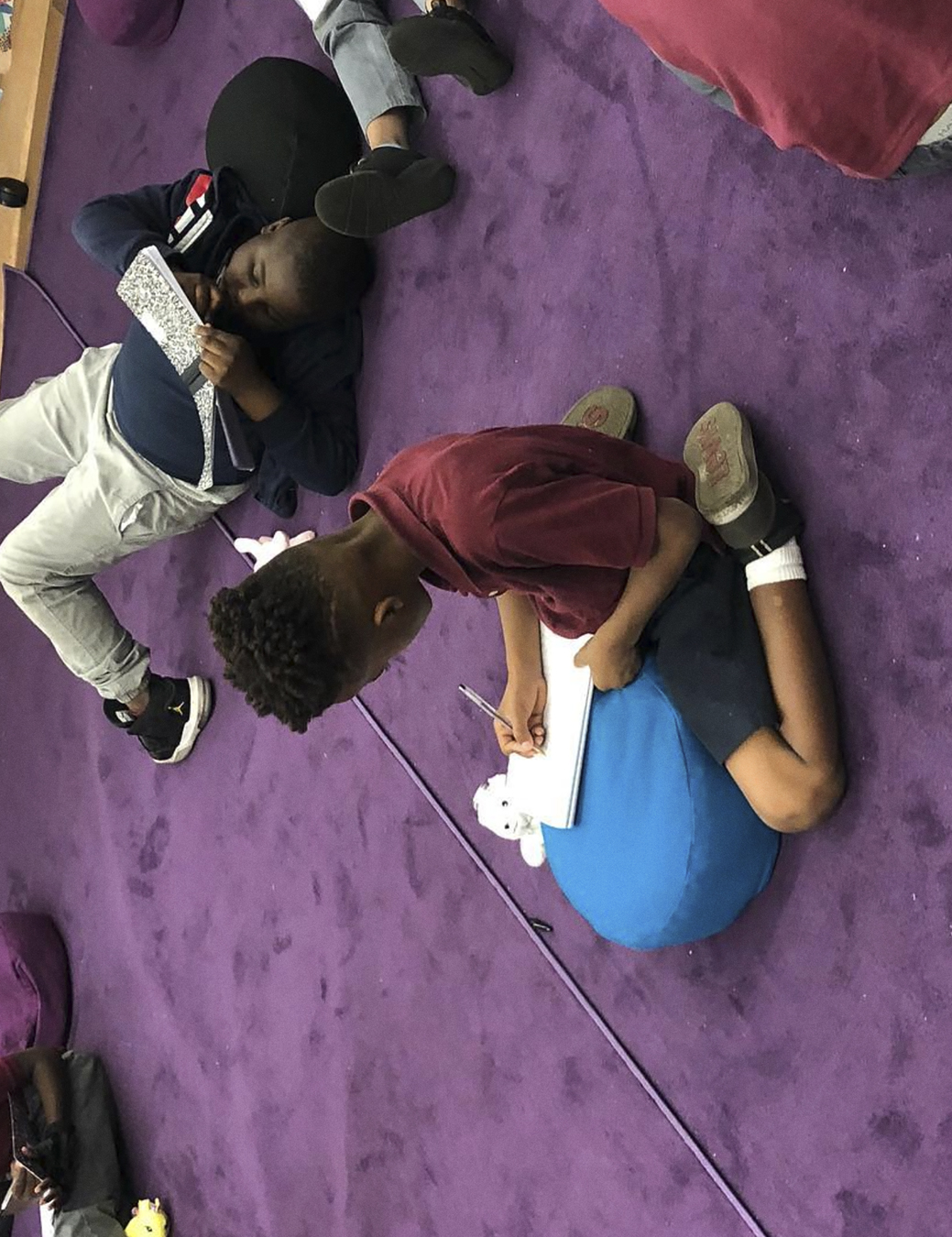
Martine: I always use an example of when I went to the film program at art school… I made really short films, like, really, really short. People would be like, “Where are you going to show this?” There was no YouTube then, you know? But I was interested and online communities were probably one of the earliest creative communities I was a part of. I would be like “Oh, I’m making these and I’m putting them online.” But that didn’t make sense to anyone. That wasn’t part of that canon at the time.
Daniel: I remember the same thing. I went to art school and studied experimental film, and I remember some of the kids that I was going to school with were also making very experimental, short, fifteen second things. I think the only community at the time that they had was either a really small group in school, or there was a couple of film festivals that they were sending stuff to. It was very much like, “Put this in the mailbox and see what happens”.
Martine: I was really into Super8 and that kind of stuff. At that moment it was missing, which was basically when it was starting to be discontinued. I think that’s part of what I really liked about working online, in a way. These conversations were a way for me to find information. But simultaneously, I was so involved with music here that…
Daniel: Making music?
Martine: Yeah. Making music. Putting on shows. Going to shows. So that way of working was just second nature to me.
Daniel: That community and engaging with the community.
Martine: Right. Like, okay, we want to do a thing. We’ll go find a venue. We’ve never done it, but we’ll rent a place. We’ll get some speakers. We’ll ask these people to do the door.
Daniel: You go through sort of a boot camp, right, and then you’re like, “I can do fucking anything.” You end up meeting people who are just like, “Okay, let’s figure this out, can we get this permit?” We did a big thing for Go Skate Day last year, and as we were putting it together, it was getting bigger and bigger, and people were donating gear, all this stuff. I was like “Yeah, I have a generator. I’ll just grab it.” And then there’s, “I know a DJ.” “I’m going to hit someone up to serve burgers.” It just became this huge thing, and the park director –we did it at the park down the street – came over to me at some point and was like, “There are 2500 kids here at the park. You could have called me.” And I was like, “Yeah, but you know if we went through the normal channels this would not have happened the way it’s happening.”
Martine: It wouldn’t have happened at all.
Daniel: He’s like, “It’s incredible. You’re totally right. But next time give me a heads up.”
Martine: I think, to your point, it’s about how do you then take that mentality and supercharge it without changing the way you’re working.
Daniel: For sure.
Martine: That’s the challenge.
Daniel: I think that will always be the challenge.
Martine: Because you have to say you can’t do it sometimes. You just won’t be able to do the thing.
Daniel: We’re trying to develop a crazy 3D character at the moment. I have an idea in my head of what it is, and I haven’t done a lot of 3D stuff, so I’m just going through every avenue possible trying to figure it out. And you hit obstacles.
Last week I had three or four conversations with people that told me, “You know, you really have to hire a whole team to do this thing.” And I’m like… “No, I don’t. I know how to do this shit. I can do this part and this part.” I mean, I can’t do all of it, but I’ve always been super inspired by all the artists around me because of both their perseverance and the vision to continue despite being told no so many times.
Martine: I feel like this about the film I just finished that’s doing festivals right now, called The African Desperate. It was a shock going through a more traditional film process of festivals and distributors, shooting with a crew and DP. Something my producer said to me early on really stuck with me, he said: “This is an art project. We’re just using the skills we have in film to make it.”
So I’ve been thinking about stuff in that way now, because I really do love working with people who are just technicians and that’s what they do. I love craft. I love nerding out with people. But then there was also this larger team. And it was interesting just to have more people in the feedback and on set. I feel like I got a good feeling, like I could definitely do this. I know what this feels like in my way, the way I want to do it, but we’re using the best of both worlds. Well, that’s what was really special about it, you could feel it.
During pre-production there’d be some stuff where people would be like, “Well, that’s not how it’s normally done,” or, “We don’t really do this.” And I was like, “Okay, look. That’s not useful. We’re not going to say that anymore. I don’t care how it’s normally done.”
If we need to do it that way, say that and we’ll figure it out. But, we get to decide. All of us get to decide right now what we want to do. But no one’s going to come down on you because that’s not how it’s done.
Daniel: I love it. There’s so much freedom in that. I mean, in some ways that’s why I also like working on books. Because you have these incredible craftsmen and women that build it right at the end. You work with all these printers, their techniques, and all these printing processes. But the form itself is a box in a way. You can put anything in it.
I know a lot of people get frustrated with how long the process takes to make a book. It’s also the reason I love working on them. You can step away from it, and come back to it. You can use all these different tools, and have so many different kinds of conversations within it that do that same thing, you know?
Martine: I think the cool thing about books is that they still manage to go places. With publishing it really travels in interesting ways – books find their way into strange places.
Daniel: Or they evolve.
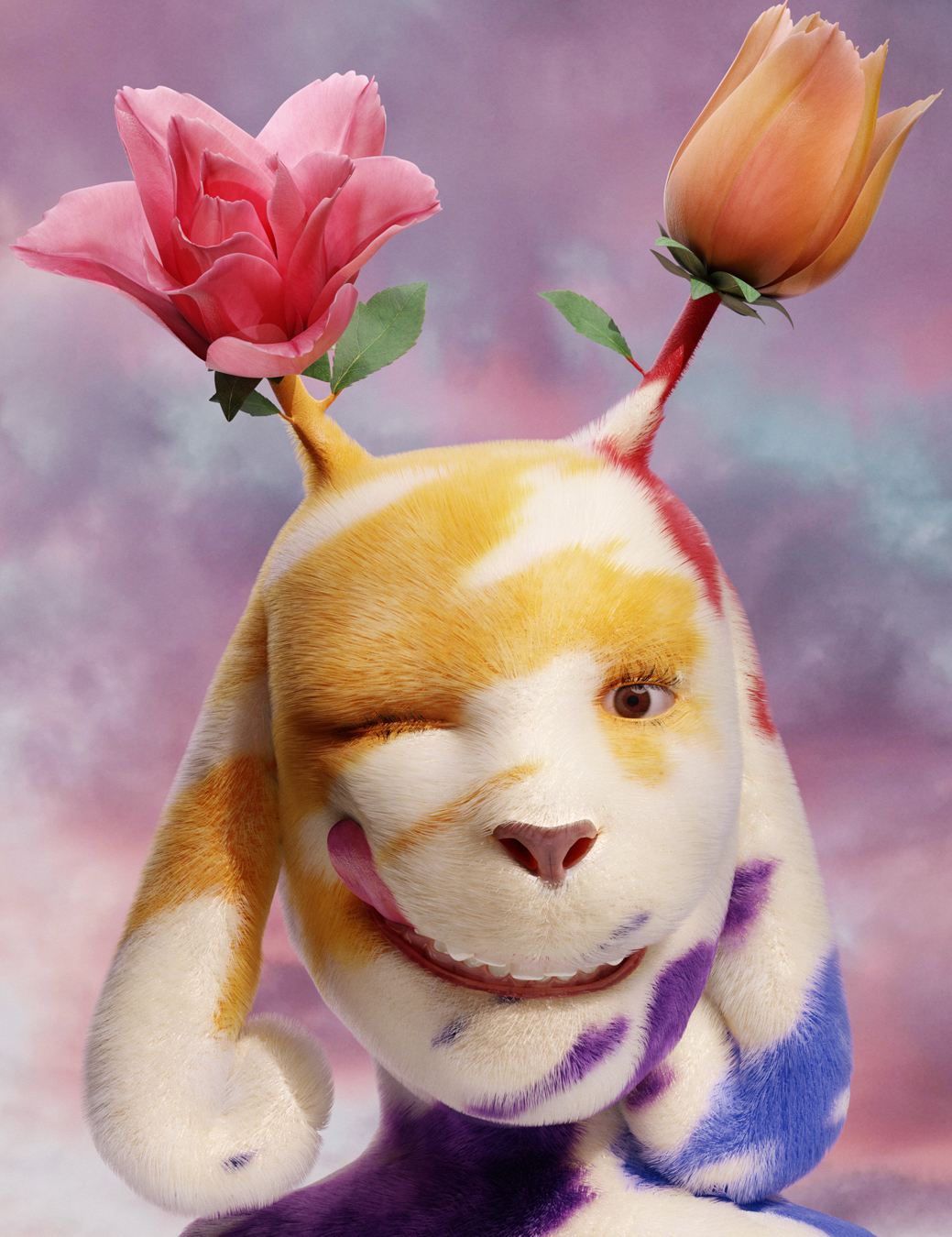
Martine: It’s been interesting when people would say, “Oh, I read that book” or “I saw this zine” and you’re like, “Where? How?”
Daniel: Yeah. Yeah, exactly. Or someone will mention something that they read somewhere: “Oh, I went over to someone’s house, and they have it on their coffee table.” It’s crazy that this little piece of information on a page somewhere in the cosmos somehow made it into your life. You know?
Martine: That’s kind of magical. I think that’s what I also love about publishing.
Daniel: So did you make it before or after that Prada film you made?
Martine: Before. But it was released after.
Daniel: How was it working with Prada?
Martine: It was fine. They’re patrons, you know? This project was great. Prada was really amazing. This was our third project. I did a film for their show in 2020. The pandemic show. By the way, I’m really good at remote shoots.
Daniel: Do you mean mentally?
Martine: I think I know how to translate digital space.
Daniel: Interesting.
Martine: Digital space, cinematic, and real space, I can really see all at once.
Daniel: Just in your element.
Martine: Yeah, basically. So that was the first project. Then I did a film for a Linea Rossa campaign last year which was cool because Ferdi Verderi, who is the art director there, is a big supporter. He’s been such a big part of my work.
And I really wanted to work with Daisy Zhou, who was the DP working on the film. So that was kind of a cool test for us, you know, and that’s what I love about working on these kind of projects. I did a Nike project in Johannesburg two or three years ago, and I worked with so many insane people on that. It was just so fun and cool. And I got to meet all these people in South Africa. So I was like, “I want to work with Daisy. I want to use this to work with her.” Plus some of the other people that were in it, like this skateboarder Leander Sanders – I don’t know if you know him. But that was also funny because I feel like that’s been a healing thing, growing up with skateboarding, hating skateboarding, and coming back to it.
Daniel: Hating it as you get older?
Martine: Yeah. But now I think it’s cool again. But from like age 22 up to last year, I was like, “Fuck these people. Fuck this shit. Fuck all you assholes.” But I think it’s more open now, and before it really was not. I grew up skating with my brother and his friends. And then I stopped when I was in high school because I was like, “Why am I going to subject myself to this?” But I was still so surrounded by the culture that I think, I was just, I don’t know. It just felt super “bro” to me. And now there’s a younger crew of people who have made it really interesting and fun to me again.
Daniel: Absolutely. I definitely agree. I grew up skating and then had a similar sort of love/hate relationship with it. At some point, when you’re younger, it felt like whatever a career might look like – I was like, “Oh, it’s going to be in this space somehow.” And then you start getting a little bit older, you know, right basically after high school, and you’re kind of like, “Fuck this.”
Martine: This is toxic as fuck.
Daniel: Yeah, and then I feel like I’ve recently – as in the last ten years – come back into it. I think that is mostly due to being fortunate enough to have a skate park across the street, and I love a bunch of the kids that skate there and hang out.
Martine: Yeah, that’s what I mean. It’s the people. Well that was what was so cool about doing that shoot. Rachelle Vinberg was also in Skate Kitchen. Brianna King was in it. They’re fun. They’re cool. I kind of knew all their work. That’s why I wanted them to be in it.
Daniel: Yeah. And there’s definitely a different energy around it at the moment.
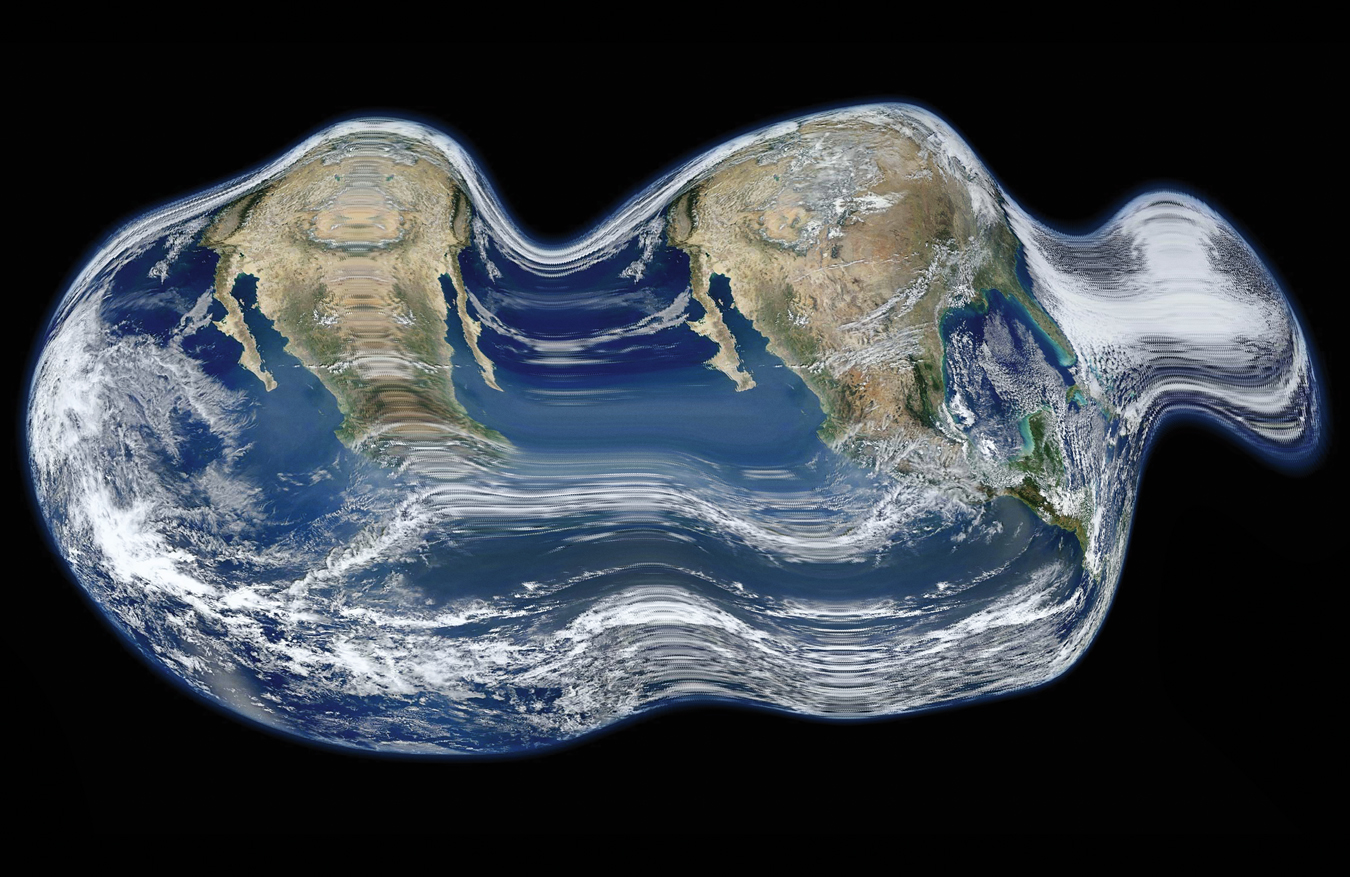
Martine: Well, that’s what I was going to say. I grew up in a particularly macho family. And as a young radical feminist it was a lot. I would get into a lot of fights with people I was friends with. But it’s changed a lot.
Daniel: Do you have tools in your own psyche to put yourself into the mode of getting inspired? Or do you ever feel uninspired, where you have to tap into some sort of other shit? Or is it just new conversations that inspire thinking?
Martine: I think I rarely feel uninspired. I can feel bored by things, but mostly that’s when I’m paying too much attention to an industry, or if I’m paying too much attention to what other artists are doing or whatever.
Daniel: You start falling into the rhythm of that.
Martine: It feels boring ‘cause it’s like, who cares?
Daniel: Yeah, absolutely.
Martine: You know, I like to be in the world. So, whenever I start to feel that way, or I feel burnt out, or I feel uninspired by the institutional sides of things, I have a good community of people and that’s always so life sustaining to me. Things like music, going out to see music, traveling, nature, meditation, cooking. You know, all the basics.
Daniel: They work. They’re the go-to for a reason.
Martine: But I feel I’m really inspired by young people.
Daniel: Very much the same.
Martine: Whether it’s my nieces, my nephews, or the kids in my life. I’m always like, “What are you reading? What are you into? What are you fucking with right now?” Like, shit, what’s that game called, Roblox. It’s some kid shit. But one of my nephews lives in Berlin, and he just got an iPad, so you can text him or call him which is really fun.
Daniel: I love it.
Martine: His texts are, like, “Hey, can you play Roblox?” And he’ll just call me at like three in the morning to play Roblox.
Daniel: And these are kid games?
Martine: Yeah, little kid games. And there’s one where you can choose your form. I chose to be a baby, and he was like, “Why do you want to be a baby?” But it’s just like a different way of consciousness, you know, or teaching. What I really liked about teaching is that you have this forum where you all get to bring ideas together. I’m so hyped on life! That sounds really cheesy because I can also be very dark and depressive, but I honestly love being alive. It’s so fucking weird.
Daniel: That’s beautiful to hear.
Martine: I just step away. You can have so many different ways of engaging with the world, and touching the world.
Daniel: And so, why not? I think I probably get the most out of myself when I feel like I’m in a little bit of a rhythm. I’m always like, “Damn, how do I fall back into that?” when I’m dealing with a client thing or whatever that is. But then as soon as I sort of step out of it and I feel inspired through a conversation, I’m like, “Oh, fuck. We can do anything.” Anything is actually possible.
Follow i-D on Instagram and TikTok for more from the new issue.
